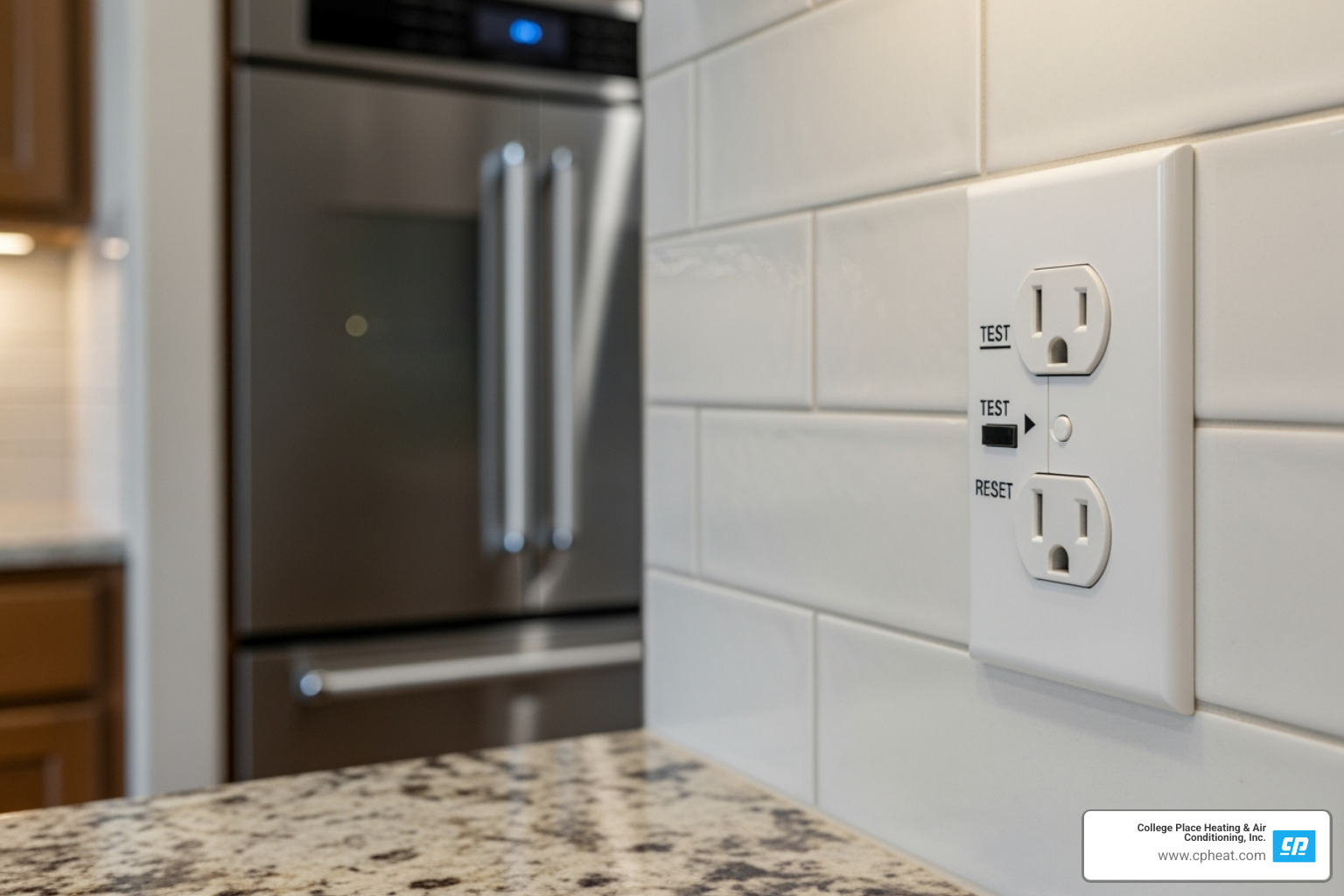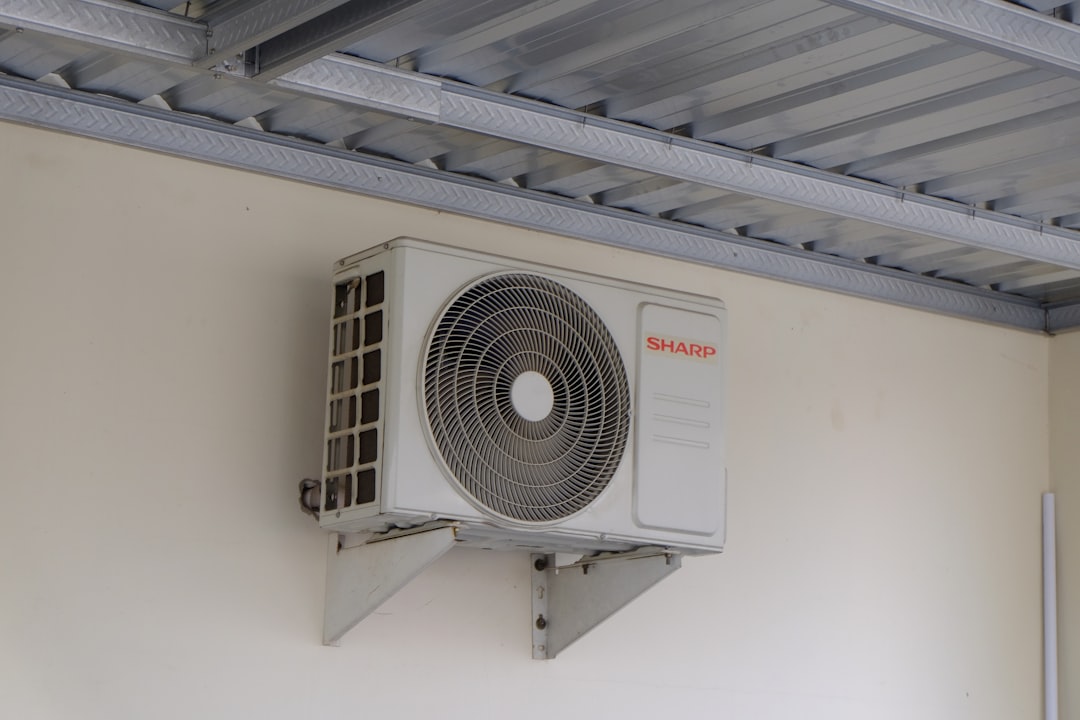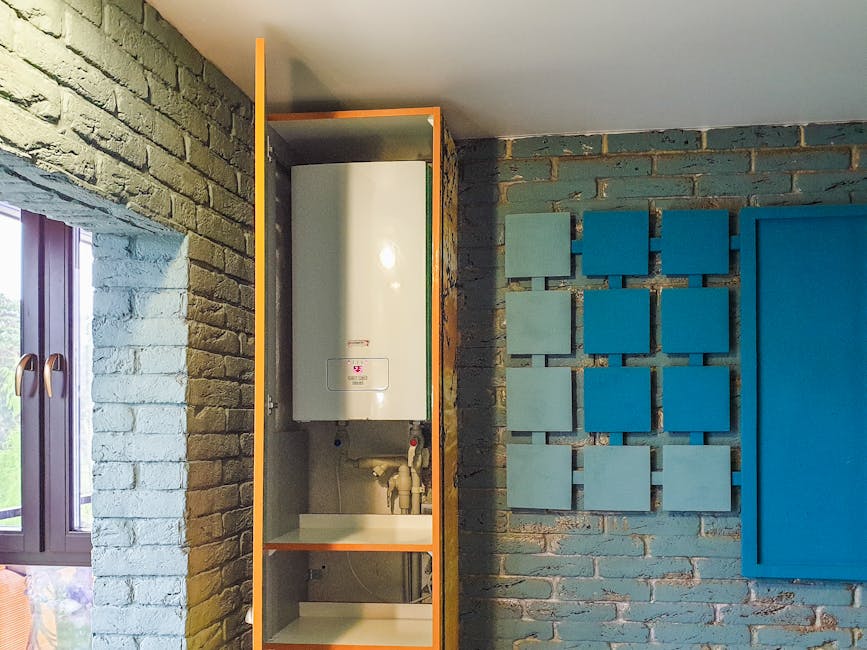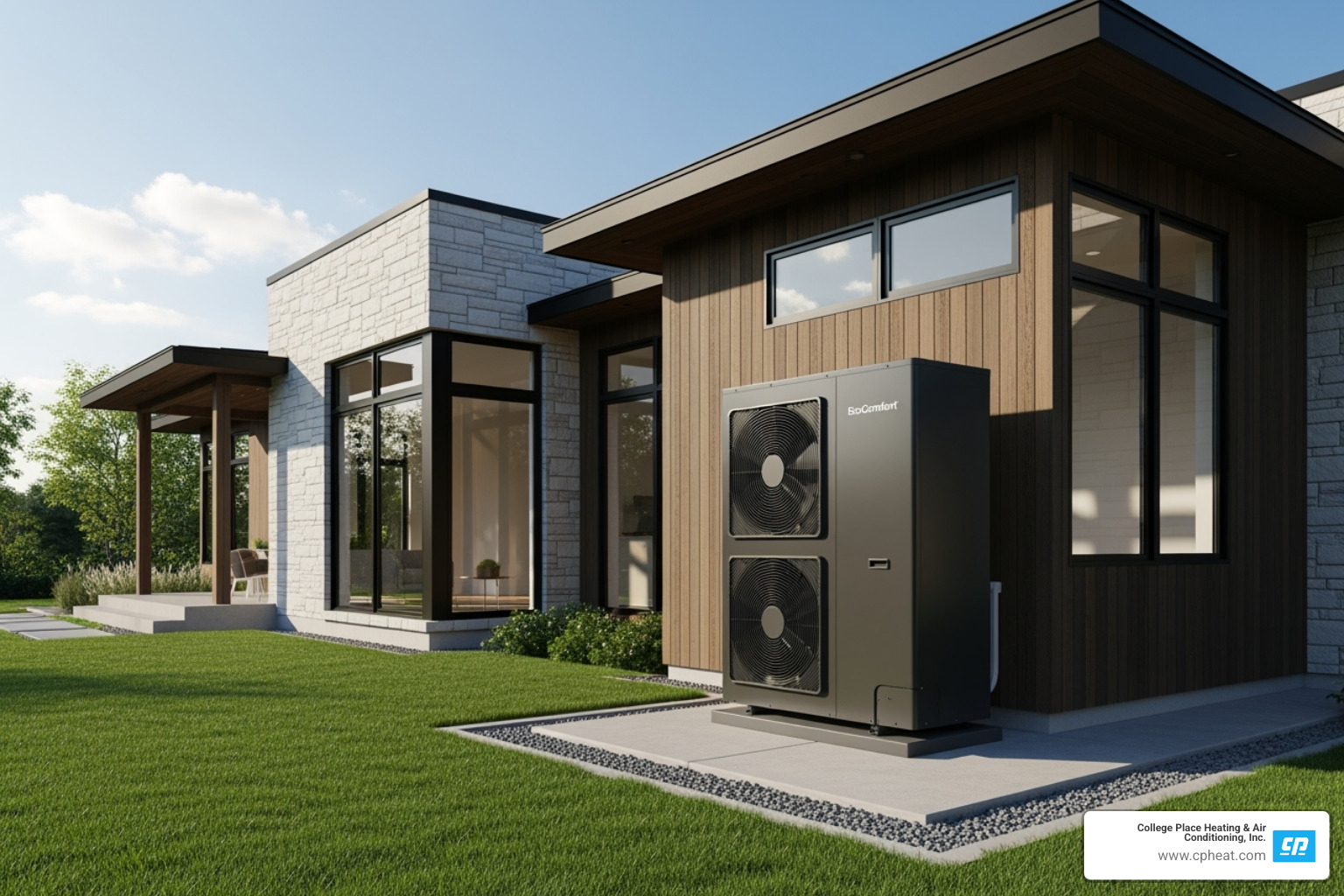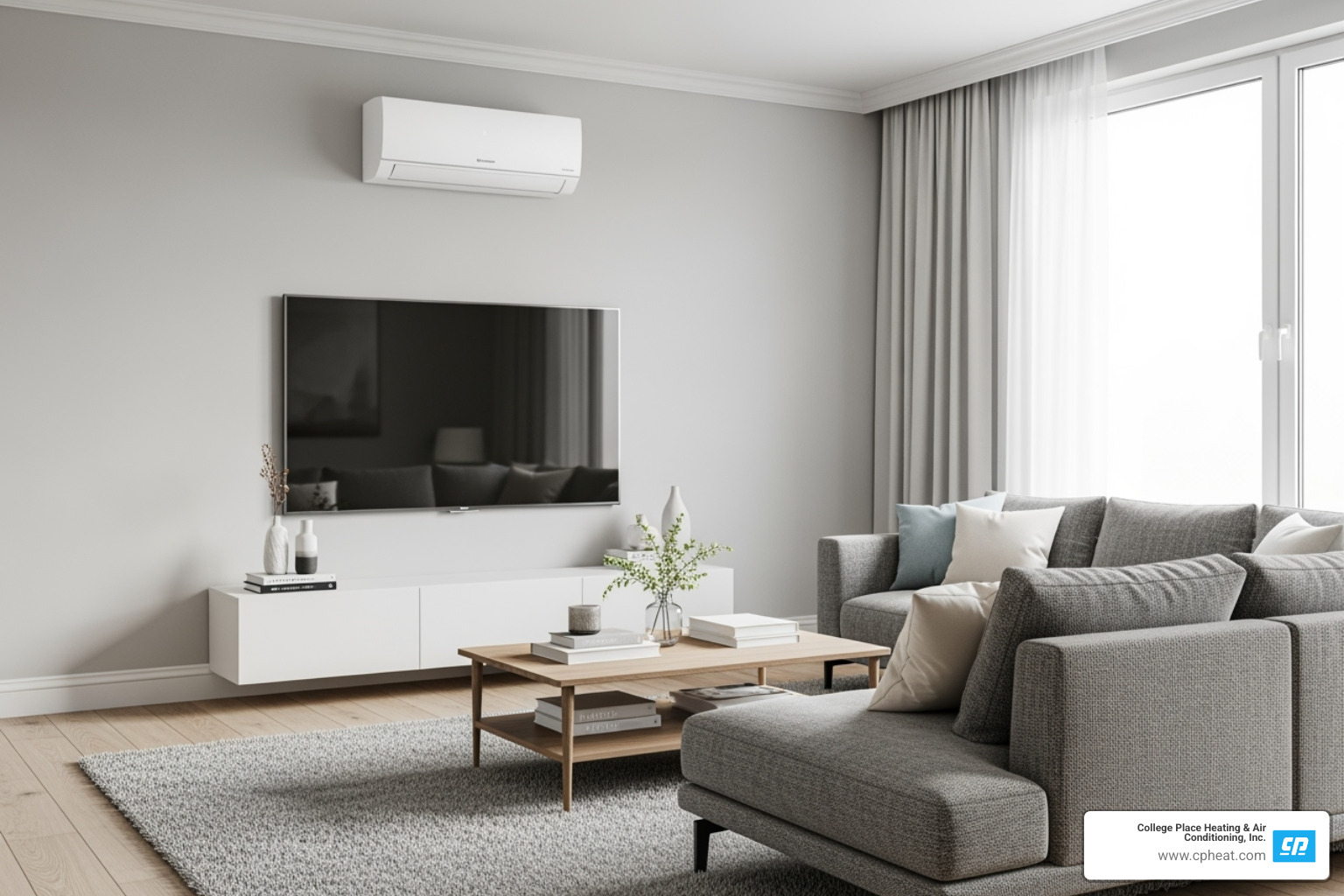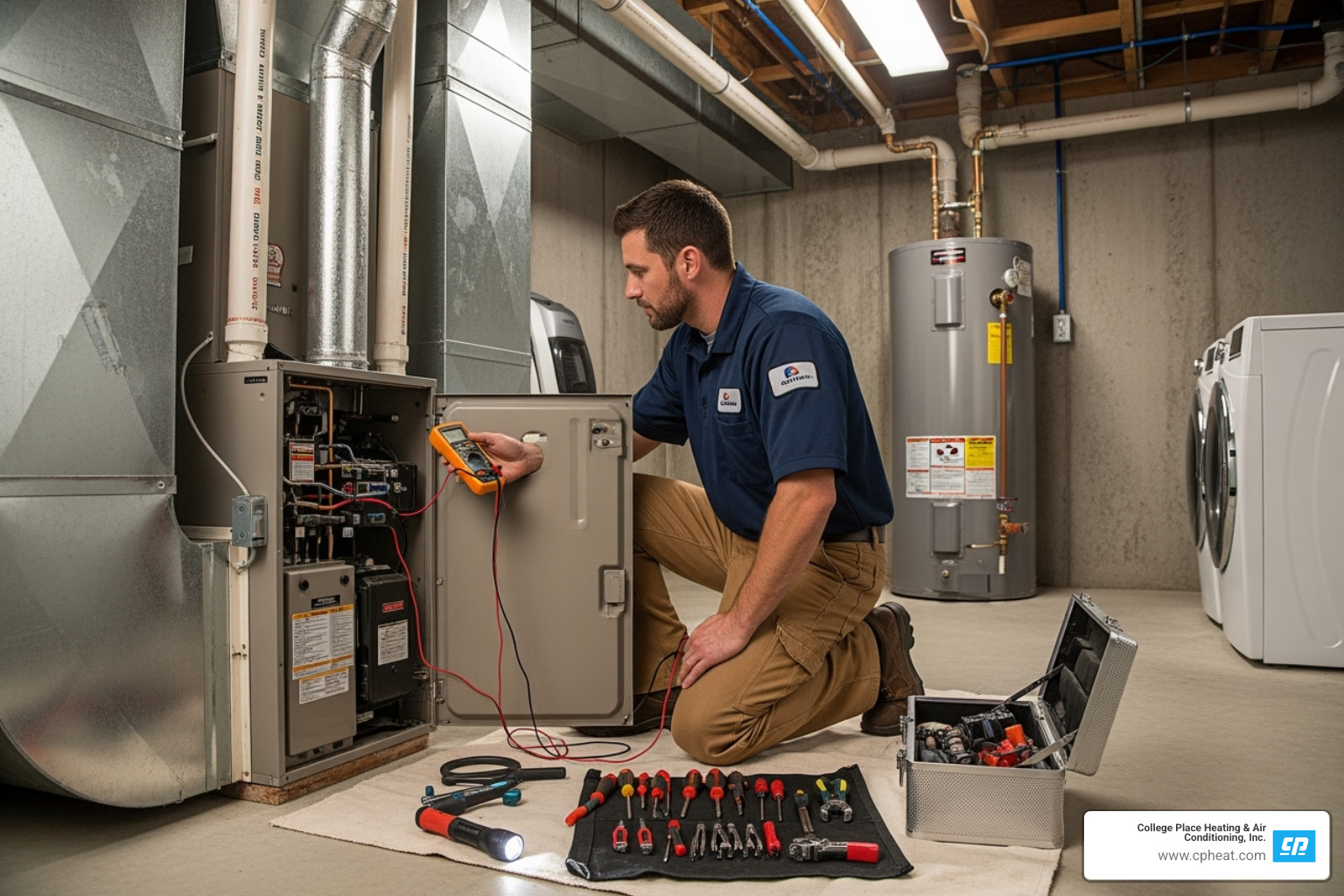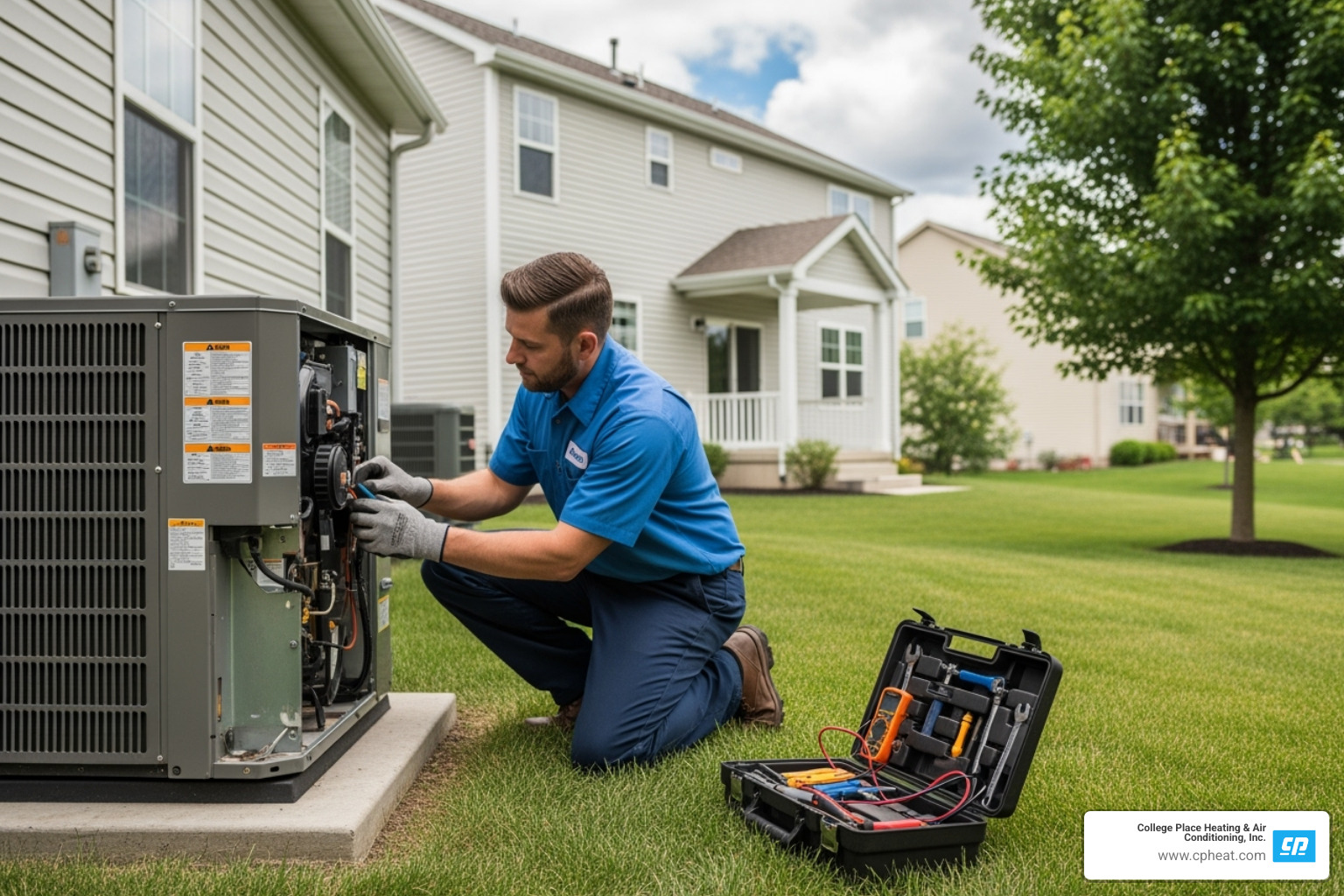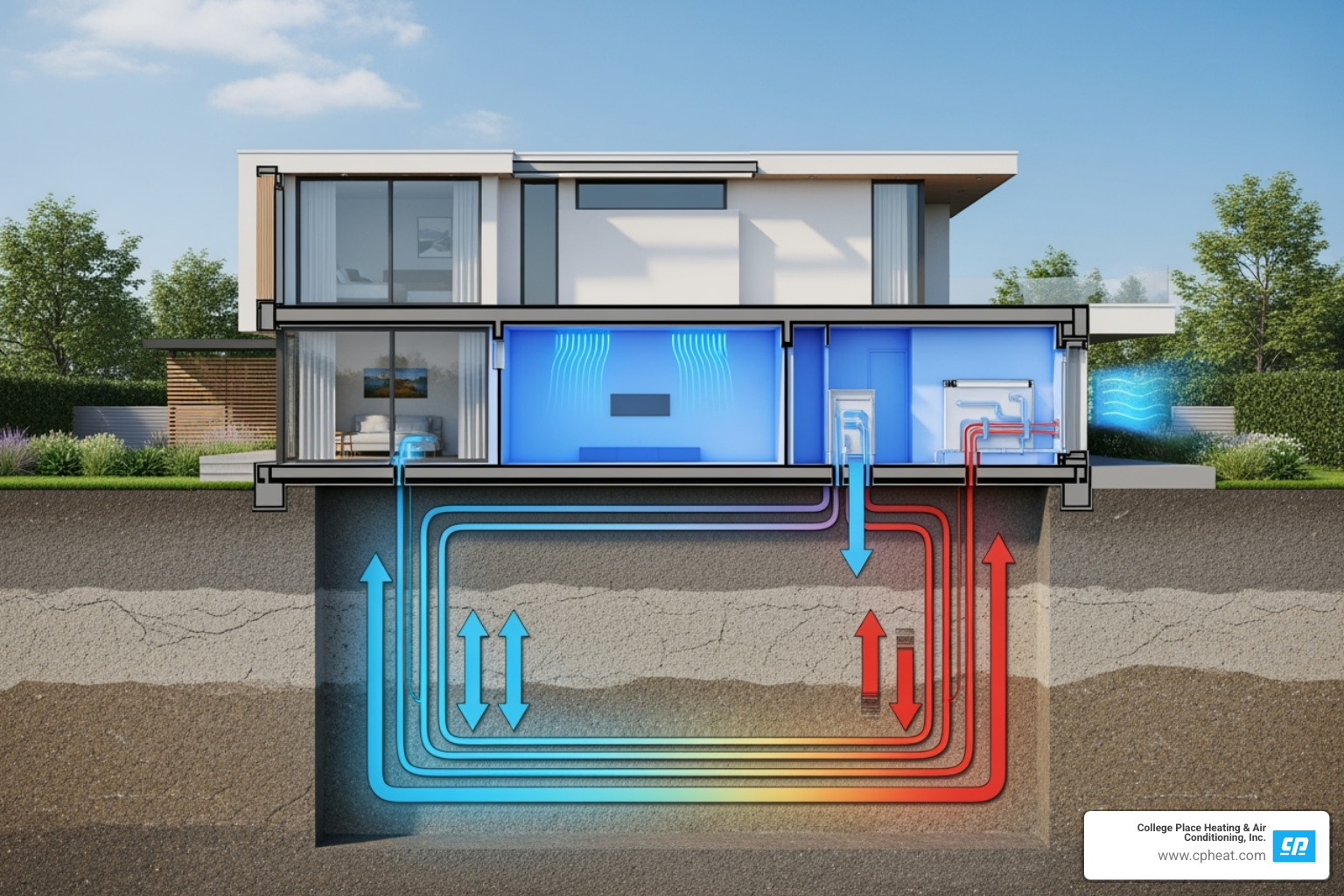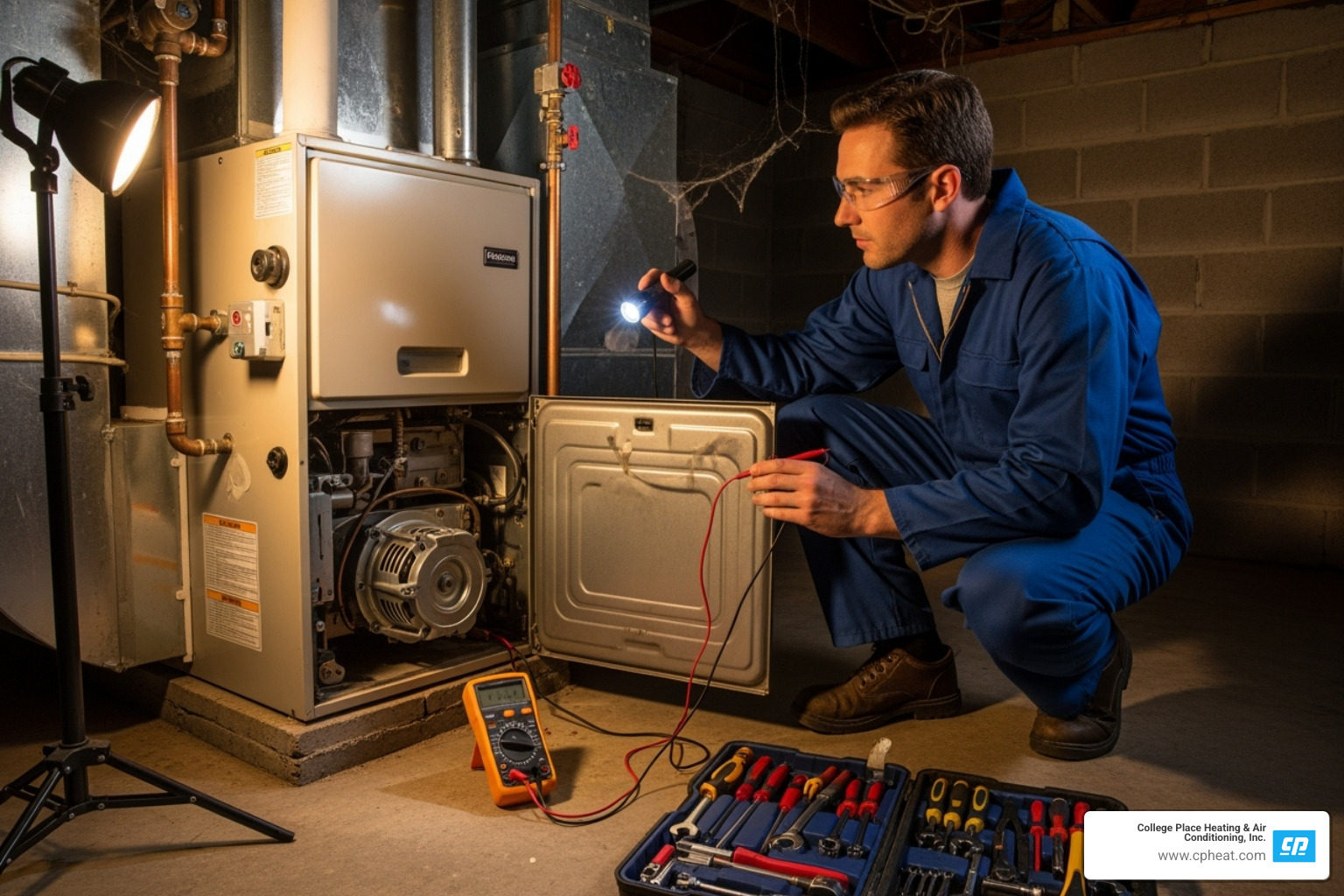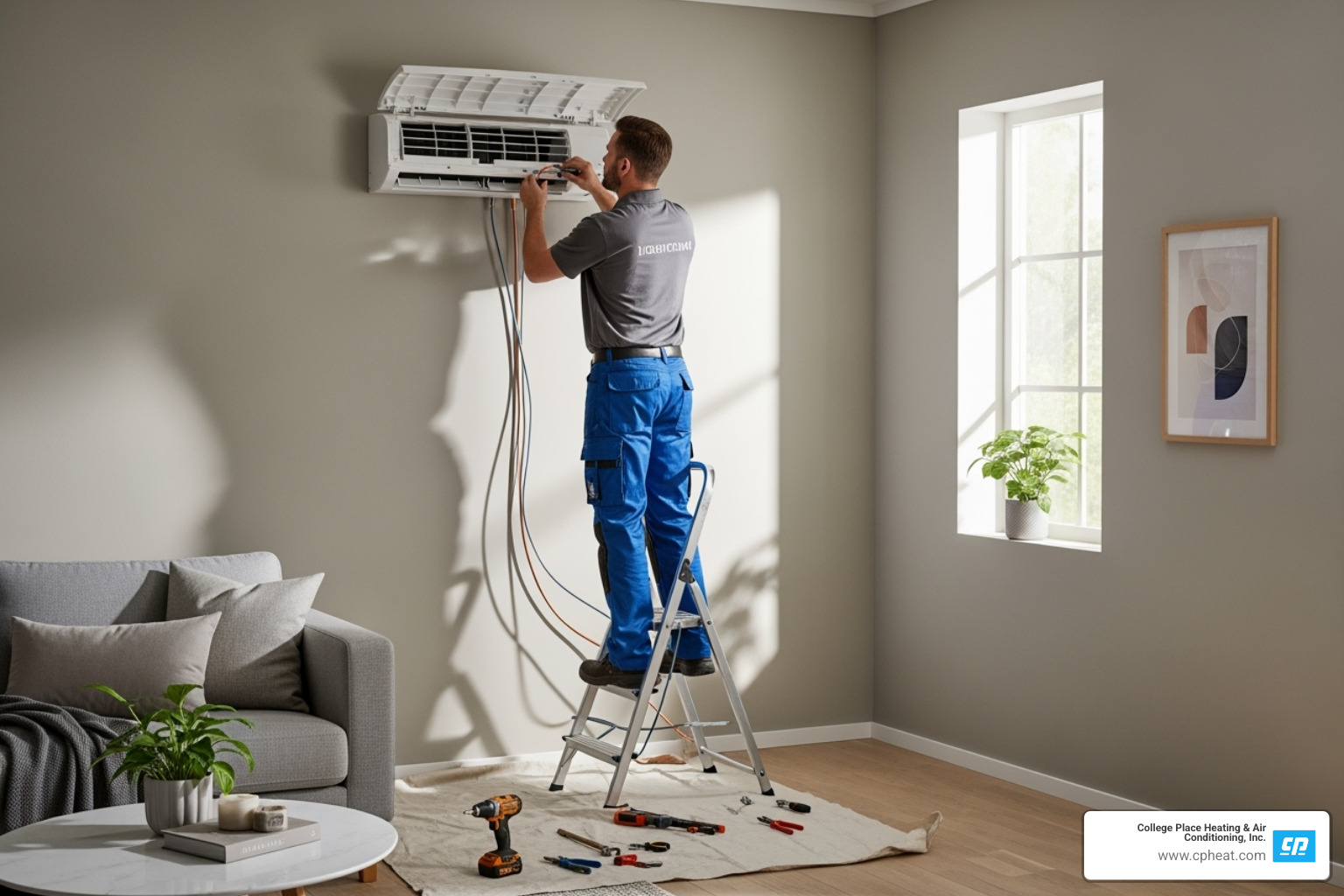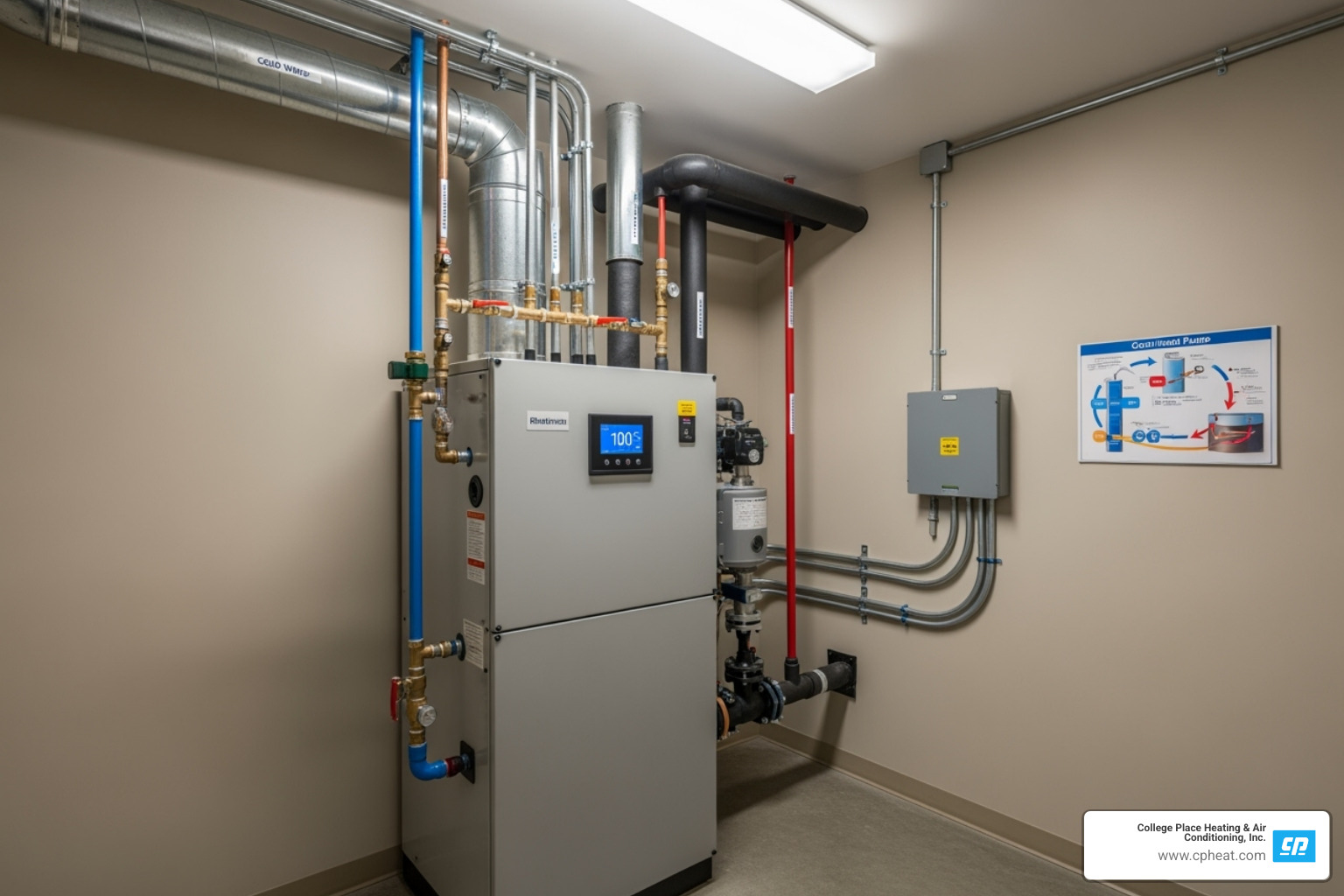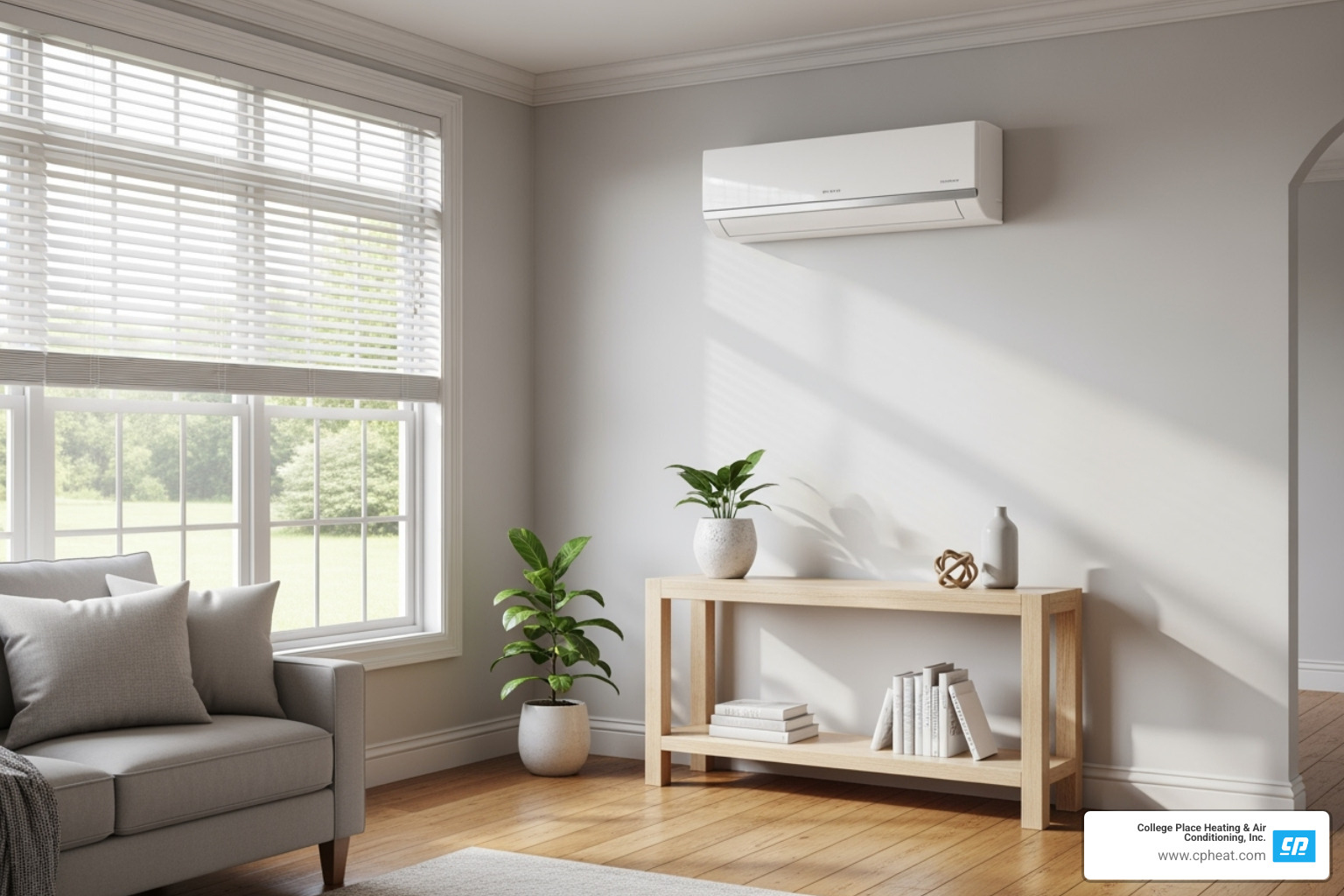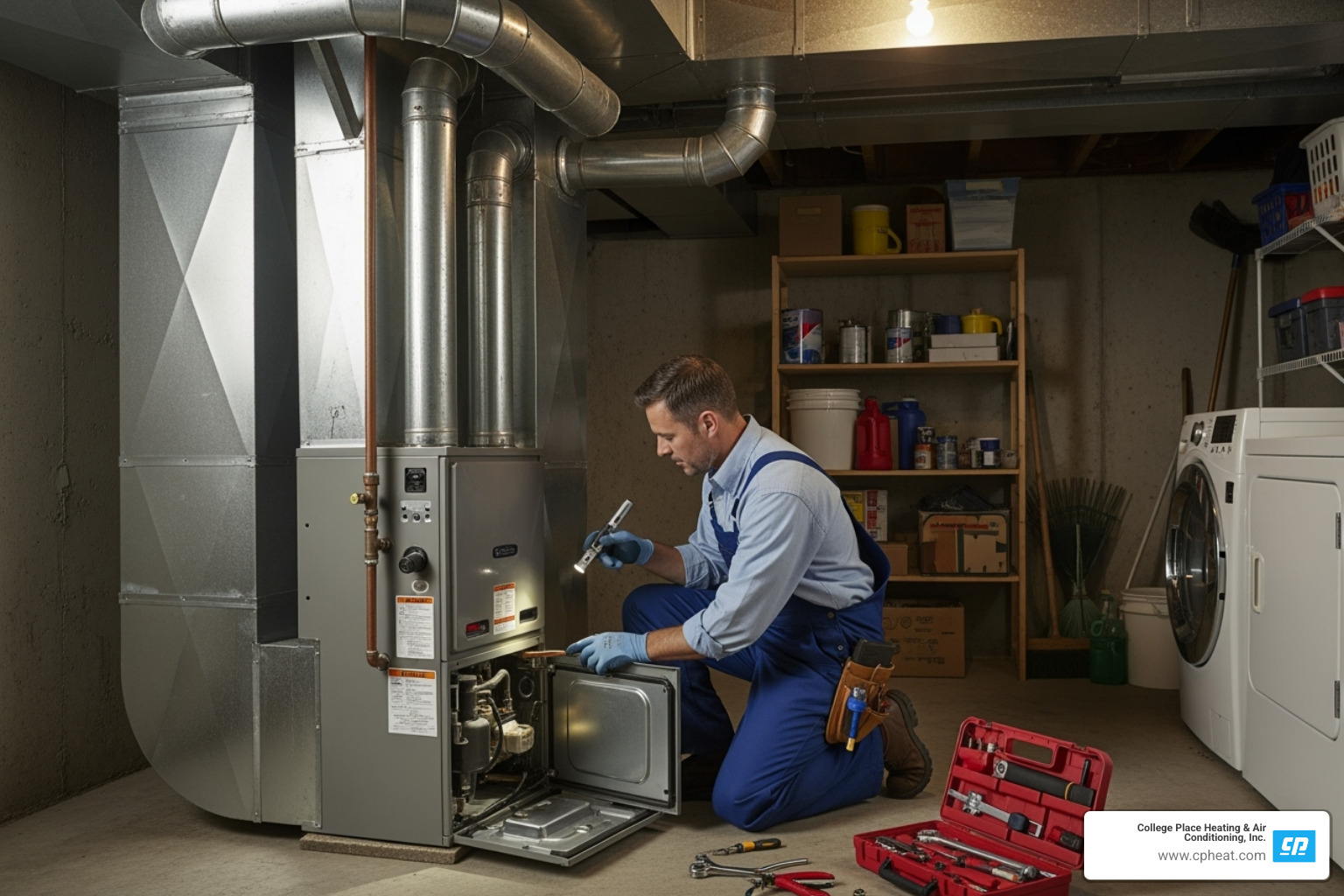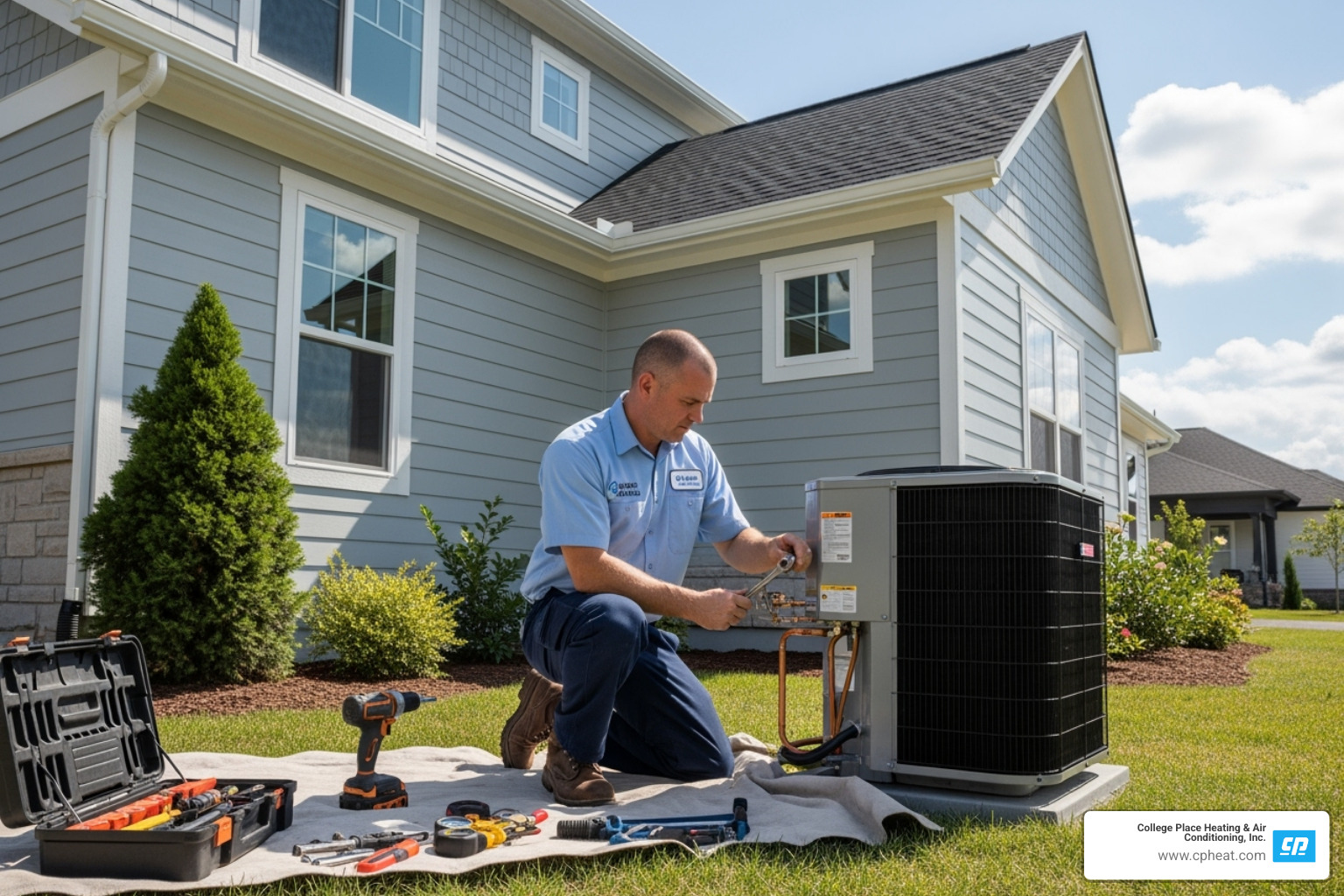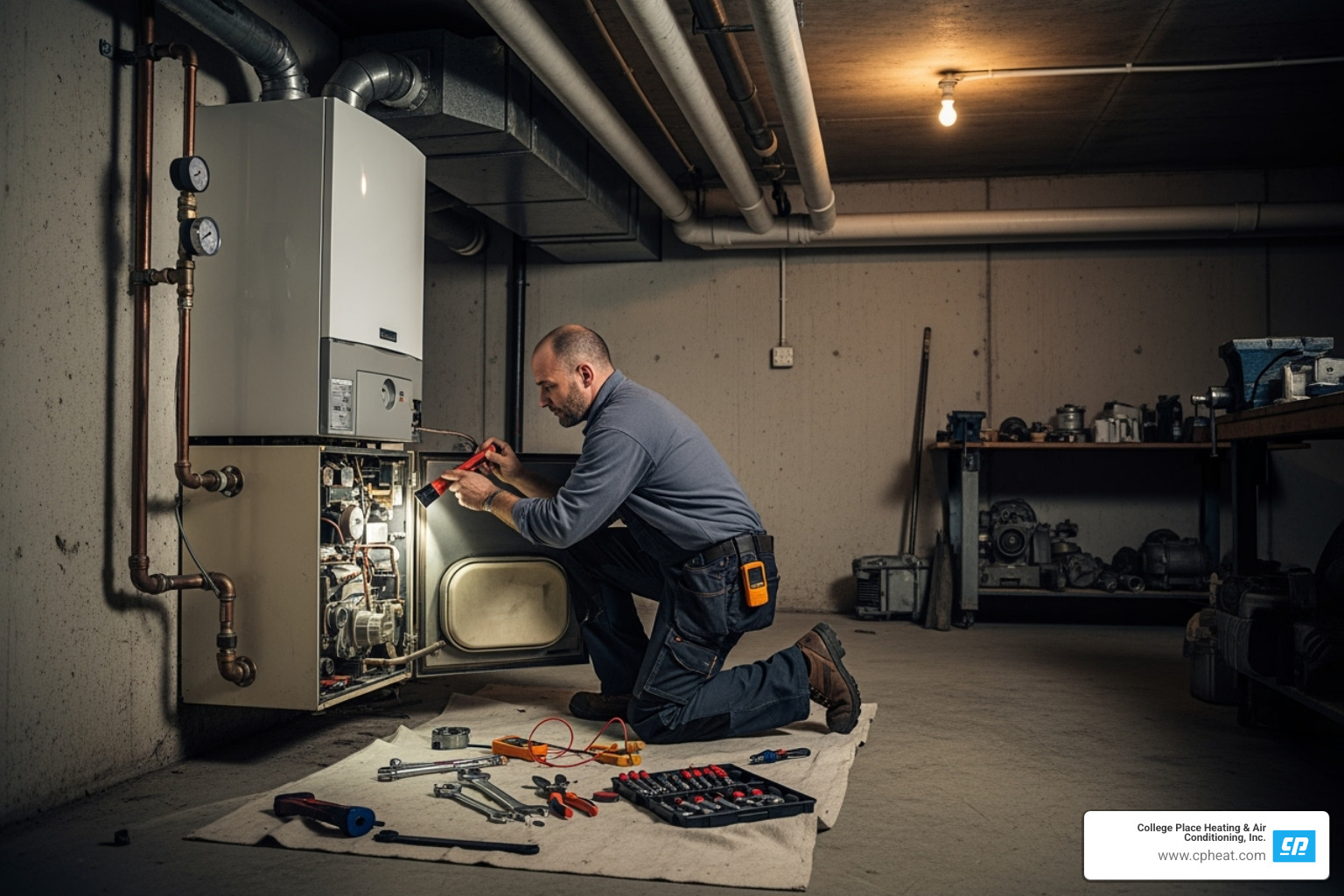When your air conditioning system isn’t performing well, it can make your home uncomfortable. Identifying the right time to replace your AC can save you from frequent repairs, high energy bills, and inadequate cooling. Knowing the signs can help you decide when it’s time to invest in a new unit.
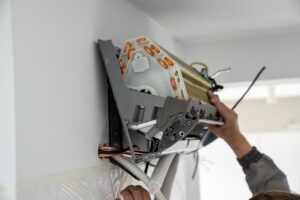
Signs That It’s Time for AC Replacement
- Frequent Repairs and Rising Maintenance Costs: One of the most telltale signs that it’s time to replace your AC system is the frequency and cost of repairs. If you’ve found yourself repeatedly calling our professionals for AC repairs, it might be more economical to invest in a new unit. Constantly fixing an old system adds up over time, both in terms of money and inconvenience.
- Inadequate Cooling and Inconsistent Temperatures: If your home is experiencing uneven cooling or if the AC runs continuously without reaching the set temperature, these are signs that your system is struggling. Inconsistent temperatures can be particularly frustrating, making some areas of your home uncomfortably warm while others are cool. An inefficient system will also lead to higher energy bills, as it uses more power to achieve less effective results.
- Unusual Noises and Smells: Strange noises like rattling, grinding, or hissing from your AC unit often indicate mechanical issues that need immediate attention. Similarly, unusual smells could signify problems such as mold growth or trapped debris inside the system. These issues are not only inconvenient but can also pose health risks to your household. When such symptoms arise, replacing the unit can be a safer and more efficient solution.
Benefits of Replacing Your AC System
- Improved Energy Efficiency and Reduced Utility Bills: A new AC system is generally more energy-efficient than an older model. Modern systems are designed to consume less power while delivering optimal cooling performance. By upgrading to a new, energy-efficient unit, you can significantly lower your monthly utility bills. Enhanced efficiency also means your system will have a smaller environmental footprint, making it a more eco-friendly choice.
- Enhanced Indoor Air Quality: Replacing your old AC system can improve the air quality inside your home. New units come equipped with advanced filtration systems that remove dust, allergens, and pollutants more effectively than older models. This results in cleaner, healthier air for you and your family. Improved air quality can reduce allergy symptoms and improve overall well-being.
- Increased Home Comfort: A new AC system ensures a more comfortable home environment. Modern systems cool more efficiently and maintain consistent temperatures throughout the house. Whether you choose a central air conditioning unit or opt for a mini split air conditioner, the upgrade will provide greater comfort and reliability. Advanced features like humidity control and programmable thermostats further enhance your home’s comfort.
Replacing your AC system offers numerous benefits that go beyond just cooling your home. From improved energy efficiency to better indoor air quality and overall comfort, a new unit represents a significant upgrade over an outdated, inefficient system.
Options for AC Replacement
- Comparing Different Types of AC Systems: When considering an AC replacement, it’s essential to understand the various types of systems available. The most common types include central air conditioning systems, window units, and mini split air conditioners. Central air conditioning systems are ideal for cooling an entire home, while mini split air conditioners are perfect for individual rooms or smaller spaces. Mini splits offer flexibility in installation and are known for their energy efficiency. Each system type has its pros and cons, so it’s important to assess which one will meet your needs best.
- Factors to Consider: Size, Efficiency, and Features: Selecting the right AC system involves considering several factors. Size is crucial as an improperly sized unit can lead to inefficiency and discomfort. Efficiency ratings like SEER (Seasonal Energy Efficiency Ratio) can help you gauge the system’s effectiveness in energy use. Additionally, modern AC units come with a variety of features, such as programmable thermostats, humidity control, and smart technology integrations. Evaluating these aspects will help you make a well-informed decision.
- How Our Professionals Can Help You Choose the Right System: Our professionals are here to guide you through the process of selecting the perfect AC system for your home. We take into account your specific needs, preferences, and budget to recommend the best options. Whether you are interested in a central air system or a mini split air conditioner, our experience and expertise ensure that you receive a unit that provides optimal comfort and efficiency.
The AC Replacement Process
- Preparing For The Removal Of The Old Unit: Before installing a new AC system, the old unit must be carefully removed. Our technicians will ensure that all electrical connections and refrigerant lines are safely disconnected. Proper disposal of the old unit follows all environmental guidelines to minimize any ecological impact.
- Steps Involved In Installing The New System: The installation of your new AC unit involves several steps. First, the new system will be positioned and secured in place. Next, our technicians will connect the necessary electrical and refrigerant lines, ensuring everything is properly sealed and insulated. Afterward, they will test the system to confirm it’s running efficiently and effectively. This step-by-step process ensures the longevity and performance of your new AC system.
- Importance Of Professional Installation And Post-Installation Checks: Professional installation is vital for the optimal function of your new AC unit. Improper installation can lead to inefficiencies, potential damage, and even safety hazards. Post-installation checks are equally important, as our technicians will verify that the system operates correctly, provide you with essential maintenance tips, and set up any additional features like programmable settings. These steps help you get the most out of your new system from day one.
Conclusion
Deciding to replace your AC system is a significant investment that comes with numerous benefits, including improved energy efficiency, enhanced indoor air quality, and increased home comfort. By understanding the various types of systems and factors to consider, you can make an informed decision that suits your needs. The AC replacement process, when handled by professionals, ensures a smooth transition and optimal performance of your new system.
Don’t wait until your AC system fails entirely. If you recognize any signs that it’s time for a replacement or if you’re ready to experience the benefits of a new, efficient unit, contact us at College Place Heating & Air Conditioning today. Our team is committed to providing high-quality AC replacement services in College Place.


